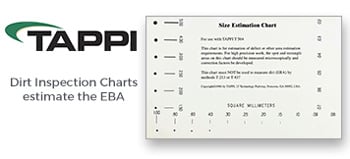Effect of Defibration Prior to Peroxymonosulfate Pulping and Transition Metal Content of Fiberized Wood on Pulp Strength, 1994 Pulping Conference Proceedings
Edward L. Springer
The tensile and tear strength properties of pulps produced by peroxymonosulfuric acid delignification of aspen fiber were compared with those of a pulp produced by peroxymonosulfuric acid delignification of alkaline-pretreated aspen chips. Even after acid pretreatment to remove trace transition metals from the fibers before pulping, the fiber pulps were weaker in tensile strength than the chip pulp. The acid-pretreated fiber pulps, however, were stronger in tearing strength than the chip pulp. These strength differences were due to the low density of the handsheets produced from the fiber pulps. Mechanical damage to the fibers produced during defibration and possible topochemical differences in the delignification of fibers versus that of chips may cause these density differences.





